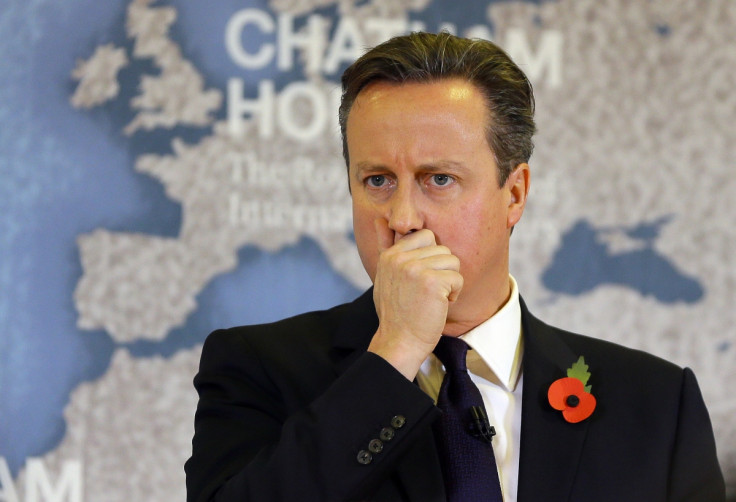Eurosceptics furious at Cameron after prime minister backs down on benefits for EU migrants

Prime Minister David Cameron is willing to scrap his controversial plan to enforce a four-year ban on EU migrants' access to welfare benefits as he bids to keep Britain in the union under renegotiated terms. This has come under attack by Eurosceptic MPs, who claim that the prime minister has thrown away an historic opportunity to reform the UK's relationship with Europe.
The announcement undermines the Conservative manifesto in which the party said it would "insist" that EU tax credits and child benefits claimants must have lived and paid taxes in the UK for a minimum of four years before qualifying for said benefits. In its election manifesto, the Tories said that changes to welfare would constitute an "absolute requirement in the [EU membership] renegotiation."
Amid fierce opposition to benefit restrictions from countries such as Poland and Slovakia, the prime minister said that he is "open to different ways of dealing with it". Speaking in the House of Commons, Europe Minister David Lidington said: "Others in the EU have concerns about this. That is why we say to them: put forward alternative proposals that deliver the same result. It is the outcome of the measures – controlled, fair, properly managed migration – that is the end we seek."
In a six-page letter addressed to European Council President Donald Tusk, Cameron outlined a four-point reform plan. These are: greater protection for the rights of non-eurozone countries, an exemption from the "ever-closer union" mission, reducing EU migration to Britain and competitiveness.
Rounding off the letter, Cameron told Tusk: "I hope and believe that together we can reach agreement on each of these four areas. If we can, I am ready to campaign with all my heart and soul to keep Britain inside a reformed EU that continues to enhance the prosperity and security of all its member states."
The Leave campaign said that the benefit retreat demonstrated that Cameron had backed away from serious renegotiation. Former Environment Secretary Owen Paterson said Cameron had missed a "once-in-a-lifetime opportunity to reform the UK's relations with the EU", while Eurosceptic backbencher, Jacob Rees-Mogg dismissed the proposals as "pretty thin gruel" which constitutes "much less than people had come to expect from the government."
Bernard Jenkin, chairman of the Commons Public Administration Committee said: "After all the statements made by the Prime Minister [and] the Foreign Secretary about being in Europe but not run by Europe, the pledge to restore the primacy of national parliaments, the pledge to get an opt-out from the charter of fundamental rights, to restore our borders ... After all that – is that it? Is that the sum total of the Government's position?"
In spite of the Eurosceptic perception that Cameron's reform agenda does not go far enough, the European Commission warned that revoking welfare benefits to EU migrants would be "highly problematic".
"We see a number of elements which appear to be feasible, like finding ways to increase the role of national parliaments, and some issues which are difficult, like ever-closer union and the relation between euro ins and outs," the Commission's chief spokesperson, Margaritis Schinas said. "And some things are highly problematic as they touch upon the fundamental freedoms of our internal market. Direct discrimination between EU citizens clearly falls into this last category."
German Chancellor Angela Merkel expressed optimism over the demands, saying the issues can be resolved as long as there is the will to do so. "We want to take a solution-based approach to these demands," Merkel said. "There are some that are difficult, and some that are less difficult. But if you have a willingness to solve this then I am confident we can resolve it."
© Copyright IBTimes 2025. All rights reserved.






















